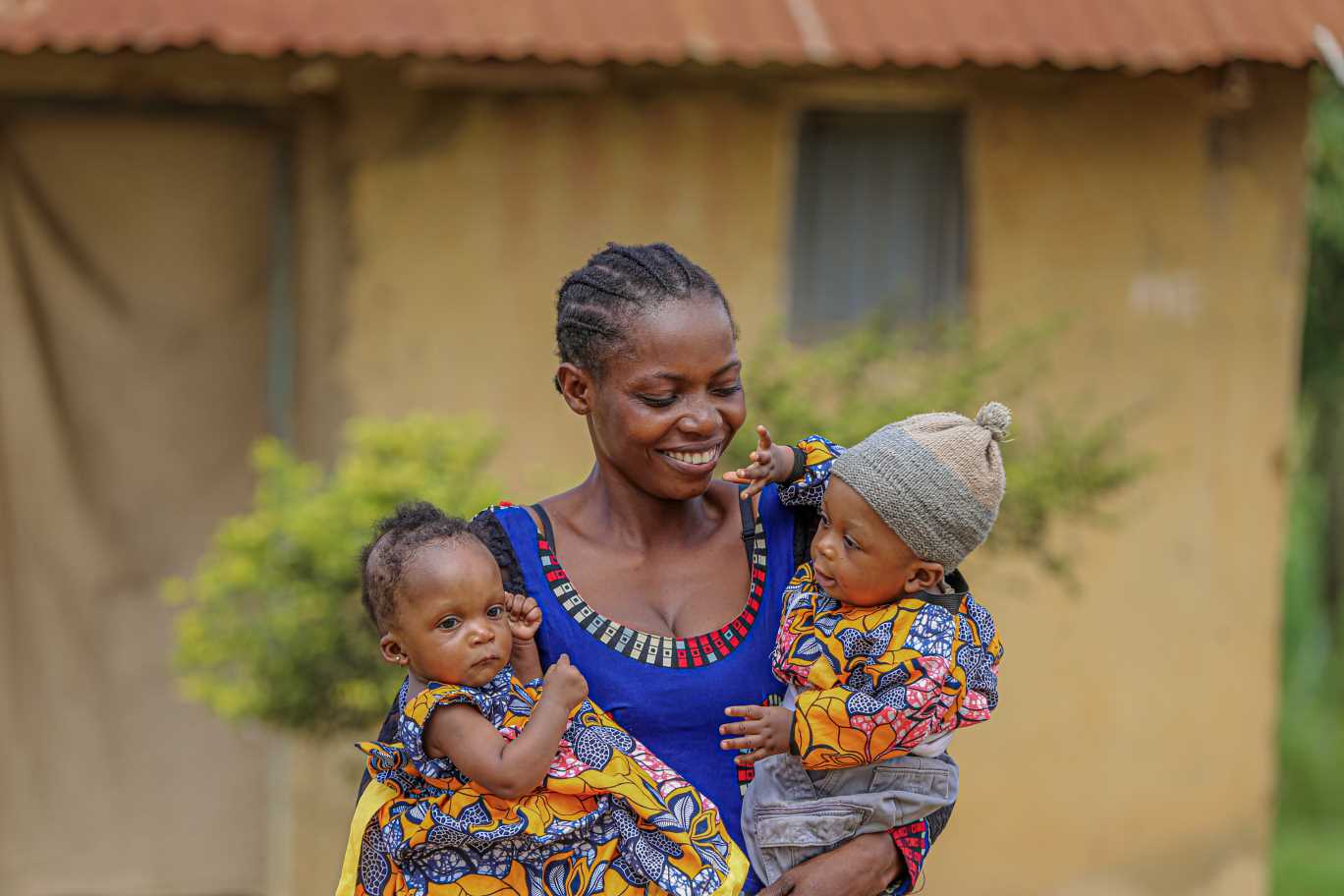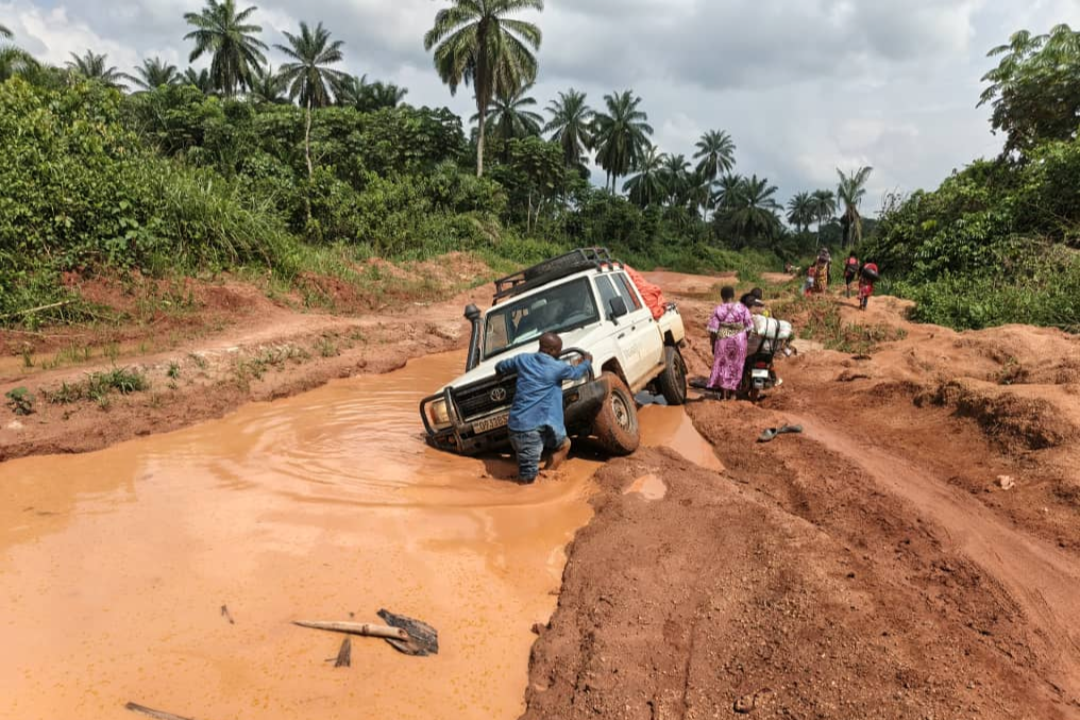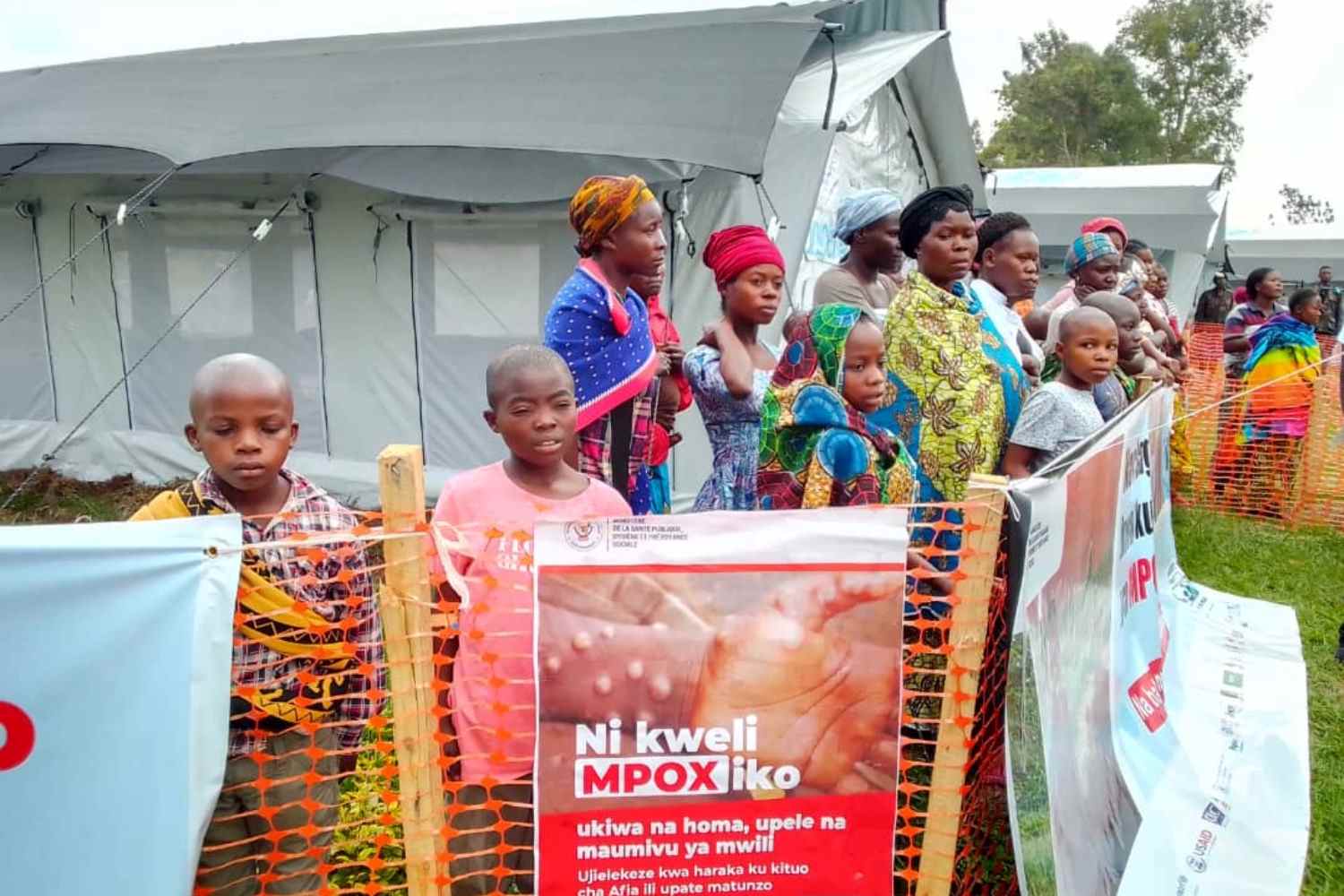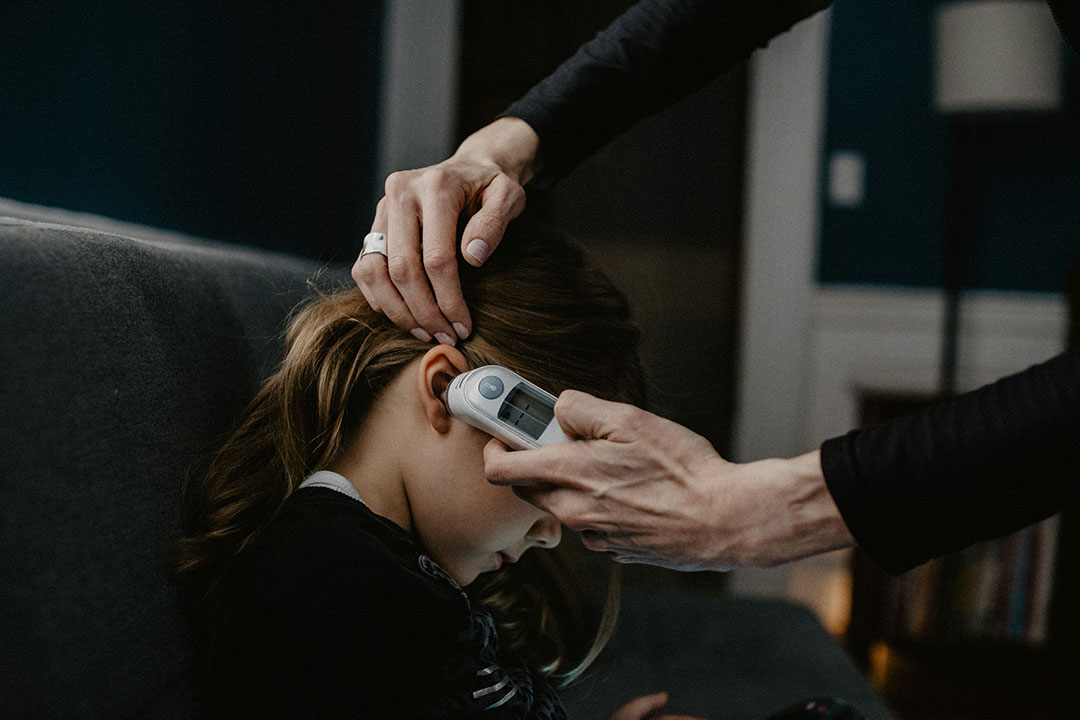In the DRC, the malaria vaccine ushers in a new chapter in the fight against the disease
Congolese families express hope that an additional layer of protection will make all the difference against the killer infection.
- 10 December 2024
- 5 min read
- by Patrick Kahondwa

In a historic step, the DRC has incorporated the malaria vaccine into its routine immunisation programme. The four-part malaria vaccine series, aimed at protecting children under five, offers a new glimmer of hope in the fight against this devastating disease.
"We rely on farming to make a living. With what we earn, we can't afford hospital bills. We have to prioritise feeding the children and paying their school fees. When they fall sick, finding money for treatment is another struggle. It's overwhelming. The only option we have is to use traditional remedies to care for our children," says Jacqueline, a farmer from Kabare village, speaking at an agricultural market in Bukavu.
“Bringing in this vaccine is a fantastic step. Malaria is the leading cause of child deaths in the DRC, and this vaccine adds a vital tool to our efforts, alongside insecticide-treated bed-nets. It’s a significant move forward in the fight against this disease.”
– Dr Mwanza Nangunia, paediatrician
Traditional medicine can sometimes provide relief, but it often falls short in severe cases. Ombeni Batasema, a mother of three, shares a tragic story:
"My child had a fever and couldn't sleep. He cried constantly, and we were very worried. We went to a local healer who gave us traditional remedies. At first, his condition seemed to improve, but a few days later, it got worse. That's when we decided to go to the hospital. They told us it was malaria. We started treatment, but he didn't survive."
According to the World Health Organization (WHO) and the DRC's Ministry of Public Health, the country recorded over 27 million malaria cases in 2022. Nearly half of those affected – 48.7% – were children under five, representing 13.3 million cases, including 1.1 million severe cases. The impact is catastrophic: out of 24,880 malaria-related deaths that year, 16,921 were children under five, accounting for 68% of the total.
Vaccination to save lives
In response to this crisis, the DRC introduced the R21/Matrix-M malaria vaccine into its routine immunisation schedule in late October of this year.
Have you read?
In June 2024, the country received 693,500 doses. Given limited supply, a phased vaccination approach is being used, starting with children aged 6 to 23 months in ten priority provinces, including Kongo-Central, one of the hardest-hit regions.
"Kongo-Central is among the provinces most affected. We've introduced the vaccine in all 31 health zones in this region. We're expecting over two million doses in early 2025, which will allow us to expand the programme to other provinces," says Dr Crispin Kazadi, head of new vaccines at the Expanded Programme on Immunization (EPI).
For paediatrician Dr Mwanza Nangunia, the vaccine is a game-changer.
"Bringing in this vaccine is a fantastic step. Malaria is the leading cause of child deaths in the DRC, and this vaccine adds a vital tool to our efforts, alongside insecticide-treated bed-nets. It's a significant move forward in the fight against this disease."
A ray of hope for parents
For parents like Landu Pulu, the mother of twins, the vaccine feels like a lifeline.
"I went to the health centre for my children's usual vaccinations. While there, I heard about the malaria vaccine and didn't hesitate. I took the opportunity to have my children protected."
In Bukavu, Rolande Bashi is waiting for the vaccine to be introduced in her area, but shares her excitement: "It's a relief to see this vaccine finally here. So many children have died from malaria, and the financial burden on families is enormous. This vaccine offers a real solution."
To be fully effective, children need four doses, given at 6, 7, 8 and 15 months of age.
Authorities are also calling for stronger international support to secure more doses and bolster local logistics.
"With these four doses, we're confident children will be well protected against malaria. But it's crucial to combine the vaccine with other prevention tools, like insecticide-treated bed-nets," says Dr Kazadi.
Overcoming vaccine hesitancy
Health system workers are aware, however, that circulating rumours have the potential to suppress demand for the new – and therefore unfamiliar – vaccine. To combat misinformation, the EPI has rolled out a communication campaign involving health care workers, community and religious leaders, and local authorities.
"Rumours are inevitable, but we've stepped up awareness efforts to reassure people. Community involvement is key to overcoming these challenges," says Dr Mwanza.
This article was translated from the original French. To view the original click here







